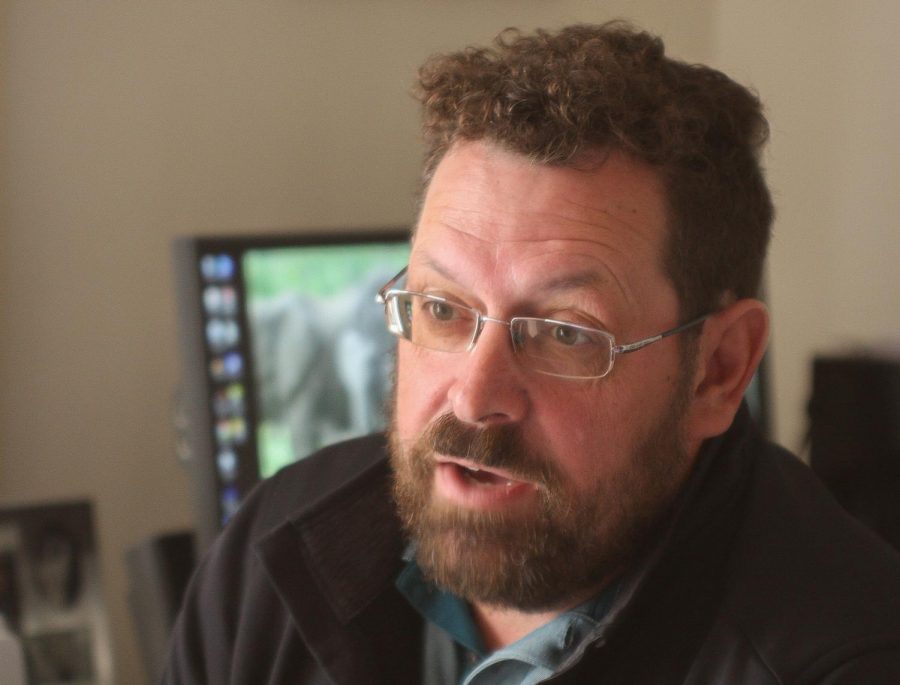Professor working to prevent animal illness
Researcher said foot-and-mouth disease is contagious, common
JACQUI THOMASSON | THE DAILY EVERGREEN
Thomas Marsh, professor in the School of Economic Sciences, discusses the detrimental effects animal diseases have on both the environment and the economy Tuesday inside Hulbert Hall.
October 23, 2018
A professor at WSU is working with universities, national agencies and non-profit organizations to study and find solutions on animal disease issues worldwide.
“I’ve been working on this for about 15 years, spending my time looking into these diseases locally and internationally,” said Thomas Marsh, a professor in the School of Economic Sciences. “The United States does a pretty good job keeping animals healthy, but in other parts of the world, particularly Africa and South America, there is a big problem.”
Marsh said around the world, farms that own livestock are dependent on the animals for food, profit and in some cases, work.
He said one of the biggest dilemmas certain countries face are politicians ignoring what they have to say. He said these countries are potentially missing out on hundreds of thousands of dollars because they refuse to accept the fact that livestock are dying.
“We’re trying to go country by country,” Marsh said. “We want to be able to go into a place and assess problems within cattle, sheep or really any kind of farm animal. This is a big task but we want to be engaging every single country and provide them with help.”
The most common issue with animals is foot-and-mouth disease, which Marsh said is highly contagious and has a global effect when the animals die.
“When livestock die off from these viruses, that doesn’t just hurt the family that owns them, it affects everyone,” he said. “If a disease such as [foot-and-mouth] broke out in the United States, that would shut down all our global markets almost instantaneously. Granted, those margins are really thin here, but in lower-developed countries it’s more concerning.”
Marsh said from a small-town perspective in third-world countries the list goes on and on, but a couple of examples might include losing asset values, nutrition or draft power to pull the plows.
“We still need to collect a lot of information but we soon hope for solutions to help farms out as well as our global markets,” he said.
Marsh said he feels this is a chance for WSU to gain national attention all for the betterment of societies around the world.
“I really believe this project offers WSU a chance to make a huge difference in the lives of people and fill the gap of information that we don’t have available, especially in developing countries,” he said.









